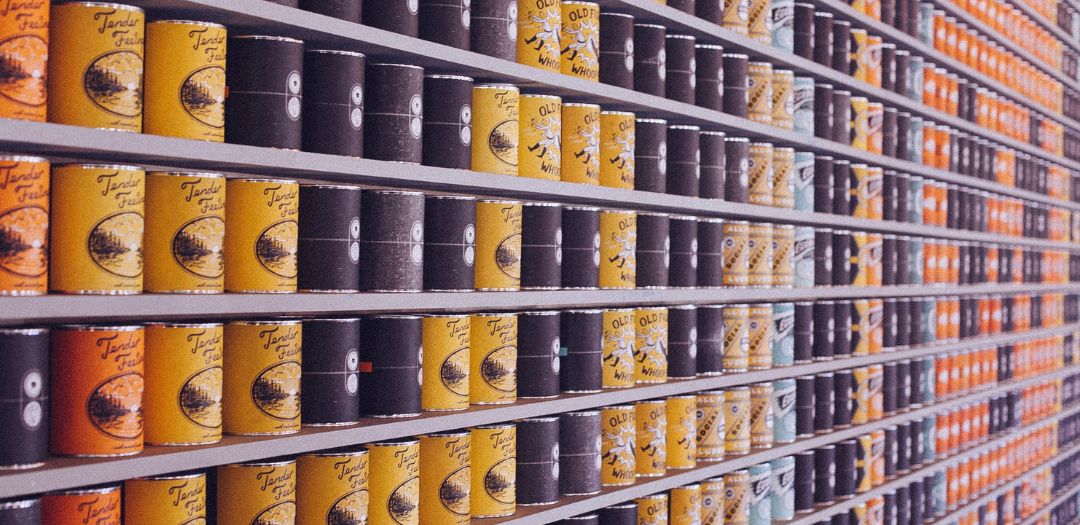How Sodium Affects Weight Loss
We all know that too much sodium in our diets can lead to health problems such as heart disease, but reports indicate that Americans are still consuming almost twice the recommended limit every day.
In addition to being part of an unhealthy lifestyle, the over-consumption of sodium also makes it more difficult to lose weight as it stops the release of water weight.
Here we explain more about how sodium affects weight loss and the steps you can take to reduce your sodium intake to improve your health and lose weight.
What Are The Recommended Daily Limits For Sodium?
The Dietary Guidelines for Americans recommend limiting sodium to less than 2,300mg per day – or 1,500mg if you’re over 51, of African descent, or have high blood pressure, diabetes, or chronic kidney disease.
As with many minerals and nutrients, a small amount of sodium daily is essential to good health.
Your body needs sodium to function properly as it helps to maintain the right balance of fluids in your body, helps transmit nerve impulses, and influences the contraction and relaxation of muscles.
You may think that you don’t consume that much sodium, but many of us aren’t aware of just how much sodium is in our diet; consider that a single teaspoon of salt contains 2,325mg and that many processed and prepared foods contain additional sodium even if you don’t add salt to dishes yourself.
How Sodium Affects Health
Your kidneys are responsible for balancing the amount of sodium in your body for optimum health; when your sodium levels are low, your kidneys essentially hold on to the sodium, and when your sodium levels are high, your kidneys excrete the excess in urine.
However, if your kidneys cannot eliminate enough sodium, the sodium starts to build up in your blood.
Because sodium attracts and holds water, your blood volume increases, forcing your heart to work harder and increasing pressure in your arteries.
Due to individual differences, some people are more sensitive to the effects of sodium than others. If you’re sodium sensitive, you retain sodium more easily, leading to fluid retention and increased blood pressure.
If this becomes chronic, it can lead to heart disease, stroke, kidney disease, and congestive heart failure.
Therefore, from a health point of view, you should try to cut back on sodium.
How Sodium Affects Phentermine Weight Loss

As well as the direct effects that it has on our health, the over-consumption of sodium also affects weight loss. Eating salty foods causes an increase in water weight.
Although too much sodium will not directly increase body fat, sodium increases water retention, which will show up on the scale.
These kinds of disappointing scale readings due to over-consuming sodium can also affect you psychologically; you may feel that you’re doing everything right, but if the scale doesn’t reflect that, then you’re more likely to become disheartened and give in to temptation, or possibly give up altogether.
By cutting down on the sodium in your diet, you will flush out the water weight that your body is retaining, and the scale will reflect this with a lower reading which will encourage and motivate you to continue.
Drinking lots of water also helps to flush out water weight as your body recognizes that it has a steady supply of H₂0 and therefore does not need to hold on to this excess any longer.
It’s also important to consider if you are consuming too much sodium.
This would indicate that your diet is not particularly healthy as most foods high in sodium are processed or prepared foods which are also likely to contain high levels of sugar, saturated fat, additives, and preservatives, such as cured meats, instant ramen noodles, fast food, sauces, and tinned soup.
So, it is likely that the over-consumption of sodium in your diet may only be a part of the greater problem of an unhealthy diet which is likely to also be low in natural whole foods such as fruits and vegetables.
Therefore, by not limiting the amount of sodium in your diet, in addition to increasing your chances of suffering from the heart problems associated with this, you are likely to increase the likeliness of suffering from additional health issues associated with an unhealthy diet, such as obesity, diabetes, and metabolic syndrome, which make future chances of weight loss much more difficult.
Losing weight for good requires a long-term approach, which means permanently changing unhealthy habits for healthy ones, and cutting down on processed foods full of sodium in favor of fresh whole foods will benefit your health and weight loss potential in many ways.
So, to reduce the acidity of your body, you should eat lots of alkalizing foods such as broccoli, carrots, cucumber, mushrooms, onions, spinach, tomatoes, apples, bananas, berries, grapes, lemons, pears, pineapple, watermelon, almonds, and cinnamon.
How To Reduce Your Sodium Intake
As many foods high in sodium are also unhealthy, aiming to cut down on sodium in your diet will help you to shed excess water weight and also to cut out unhealthy foods that make you gain weight.
These tips will help you to cut down on sodium:
Eat More Fresh Foods
Most fresh fruits and vegetables are naturally low in sodium, and fresh meat is lower in sodium than luncheon meat, sausages, ham, and bacon.
Buy fresh or frozen poultry or meat and save on calories, fat, and salt.
Opt For Low-Sodium Products
If you buy processed foods, choose those labeled “low sodium,” and wherever possible, buy whole grain rice and pasta and bypass prepared pasta dishes with added seasonings.
Replace Salt With Herbs & Spices In Cooking
You can leave out the salt in many recipes, including soups, salads, casseroles, stews, and other dishes you cook.
Using citrus fruits, olive oil, herbs, and spices instead of just relying on salt will give your dishes more flavor and also more health benefits, as many spices boost metabolism and help you burn calories.
Cut Down On Sodium-Laden Condiments
Soy sauce, salad dressings, sauces, dips, mustard, relish, and ketchup all contain sodium.
Making your own sauces and dips can help you cut down on salt and added sugar, and by making them yourself, you know all the ingredients are fresh and natural with no colorants or preservatives.
As with sugar, your taste for salt is acquired, so you can learn to enjoy less.
By gradually decreasing your use of salt, your taste buds will adjust as you become more able to appreciate the taste of the food itself, and with heart-healthy benefits.
Cutting down will also help you to avoid the scale fluctuations that come with over-consuming sodium, meaning that your weight loss will be steadier and more motivating.
And, as over-consuming sodium is associated with an unhealthy diet and possibly lifestyle, whereby weight gain and illness go hand in hand, so by cutting back, you can improve your health and chances of weight loss for the long term.
Does your diet include a lot of sodium? Or are you taking steps to cut down? Let us know by commenting below.






